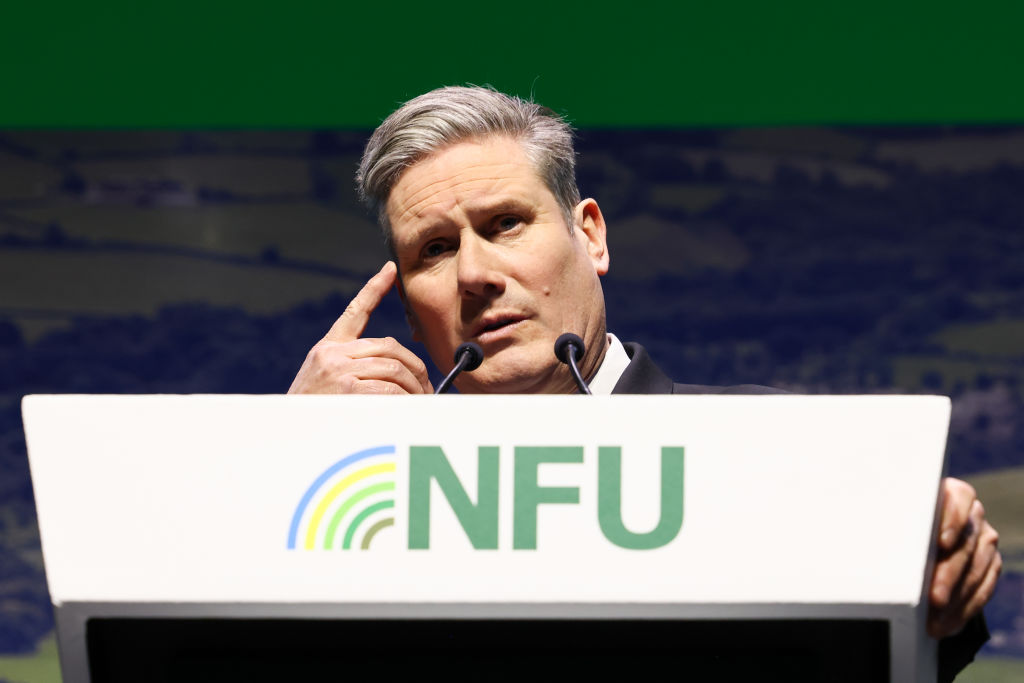Labour’s recent inaugural budget has shown that the party’s top brass are not quite the squeaky-clean “competent” representatives of the Civil-Service class that they billed themselves to be. Instead, they are class warriors. But rather than representing the interests of labour against capital, the Starmerites represent the short-term interests of the urban metropole against those in the provincial breadbasket. At least, that is what the new tax on farms suggests. The tax also puts British food security — something which should be a priority in today’s uncertain world — at grave risk.
From April 2026, any inherited agricultural assets worth more than £1 million will have to pay an inheritance tax of 20%. The Treasury has said that 72% of farms will not pay this tax, but the National Farmers Union (NFU) disagrees. The farming industry is claiming that 75% of food produced in Britain will be hit by the new tax, and that the impact on British farming will be dire.
The problem is that farming operates on razor-thin margins. Most farmers are asset-rich and cash-poor, meaning that, while their work keeps us all alive, it is not an industry that can absorb significantly higher costs of production. Farmers must squeeze every last penny of profit out of the land. On Sunday, NFU president Tom Bradshaw wrote in the Financial Times that agricultural margins are often less than 1%. This means that a plot of land worth £1 million will often yield its owner less than £10,000 a year. An investor would be better off putting their money in a standard savings account. When faced with a 20% tax to pass the land on to their children — the generational value of which cannot be measured merely in cash — many farmers will rationally choose to just pack it in and sell the farm.
Ultimately, this will mean less food production in Britain. The country is already a major food importer, as British readers will have noticed when buying Irish beef or Spanish tomatoes in the supermarket. Britain currently produces about 60% of the food needed for its own consumption, which is down from its postwar peak of around 80% in 1985. This is low by international standards. For example, while imports have increased, the US is a net food exporter and puts great strategic stock in its food security. The statistics show that the British model is closer to Japan and South Korea than it is to France, another net exporter.
It is an odd time to further undermine British food security. Not a day goes by where we do not hear a Whitehall securocrat tell the public that Britain needs to prepare itself for further global conflict. Surely, nothing could be more important for Britain’s economic national security than ready access to domestic food. And yet Keir Starmer’s government — which explicitly touts its alleged focus on security — is undermining the already teetering British agricultural industry.
What explains this seeming contradiction? It is becoming increasingly hard not to conclude that the Labour government is acting mainly as a conduit for various factions in Whitehall. When Chancellor Rachel Reeves increased the defence budget by £2.9 billion, it was less the result of a strategic vision than it was a gesture to please one Civil Service faction. The tax increases on farmers are to fund this and other expenditure, including the pay increases to public-sector workers, another interest group that has the Government’s ear.
There is no strategy here. Rather, what we see is a grab-bag of different interest groups trying to cleave as much as they can away from what is fast becoming a bankrupt state. This is why the British public is treated to the gross hypocrisy that the UK is preparing for World War III by starving itself. The previous Conservative governments struggled to hold firm against Whitehall’s myriad conflicting demands, and Labour must learn from those mistakes. If not, the hypocrisy will continue apace.











Join the discussion
Join like minded readers that support our journalism by becoming a paid subscriber
To join the discussion in the comments, become a paid subscriber.
Join like minded readers that support our journalism, read unlimited articles and enjoy other subscriber-only benefits.
Subscribe